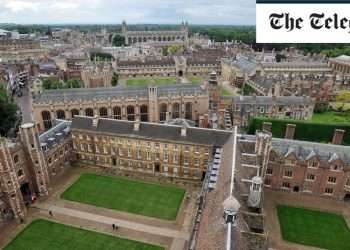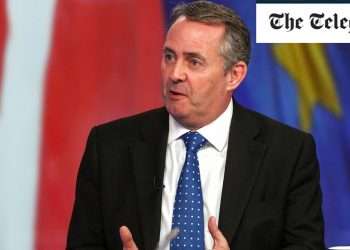
SIR – It is a Canute-type moment for the Real Academia Española to try to staunch the flood of English entering everyday Spanish, as the Académie Française has discovered in the past.
In the opposite direction, English has been a great beneficiary of imports from Spanish. There is everything in the animal kingdom from alligators to armadillos. We adopted words such as quixotic or aficionado to describe something succinctly. We cheerfully buy jalapeño sauce and chipotle crisps at the supermarket. The Wild West has given us a wide range of words such as rodeo and stampede. These terms from the New World were doubtless brought over to the Madre Patria by an armada of galleons.
It is impossible for a living language to be isolationist, though we should perhaps be rather more purist when it comes to grammar and style.
Professor Tim Connell
Vice-President, Chartered Institute of Linguists
Esher, Surrey
Training doctors as though they were pilots
SIR – We were pleased to read that GPs have realised that the effects of tiredness and seeing too many patients during the day can affect their performance and contribute to making a mistake (report, June 1).
Overbooked clinics are not just confined to general practice but also occur in hospital outpatient departments on a daily basis. Error in the NHS due to human factors such as tiredness, hunger, multi-tasking, stress and emotional problems is a significant cause for concern.
Since the 1989 Kegworth air crash (when 47 passengers died and 72 were seriously injured), airlines have recognised the many human factors contributing to serious error.
Training and systems have been put in place to minimise error on the flight deck and subsequently there has not been a single fatality attributable to pilot error on a UK-based airline in over three billion passenger journeys. We have worked with senior British Airways training captains to improve patient safety and team morale through simple measures, including regular breaks.
This approach has been applied in the operating theatre, outpatient clinic and even during high-stakes postgraduate surgery exams (MRCS) to improve performance.
All those involved in health care, not just at the point of delivery but at senior management and government level, need to implement the important lessons learnt from aviation. When providing training to health-care professionals, we often use the thought-provoking question: “Would you behave differently if you shared the fate of any error with your patients, as an airline pilot does with his passengers?”
Professor Peter A Brennan
Chairman, Intercollegiate Committee for MRCS
Queen Alexandra Hospital, Portsmouth
Dr Rachel S Oeppen
Training Programme Director, University Hospital Southampton
Politely punctual
SIR – Lucy Mangan may feel that she has three reasons for never making it to an appointment on time, but all are just excuses, not reasons.
To be delayed on the odd occasion may be misfortune, but the only possible reason for habitually arriving late is inconsiderateness. It has nothing to do with the responsibilities of work and parenthood or the vagaries of public transport.
The message such behaviour sends to the person waiting is quite clear: “Other parts of my life are more important than you.”
John Graham
Kendal, Cumbria
Whittle memorial
SIR – I am a retired member of the United States Air Force. Aviation has been a very important part of my life.
I knew Sir Frank Whittle for more than 20 years. In my opinion, he did more to shrink the world than any other living being. He was a remarkable man, a genius whose foresight, determination and courage led him to design, develop and produce the jet engine.
As his son, Captain Ian Whittle, has intimated, Frank Whittle faced titanic obstacles and major bureaucratic impediments. However, he never gave up. His work was so successful that we now, all too easily, take it for granted. We should not do so.
I suggest that British aviation authorities rename London Heathrow Terminal 5 as the Sir Frank Whittle Terminal.
This would serve to remind the world that jet flight began in Britain and that, other than the Wright brothers, no individual has done more to influence aerospace than Sir Frank Whittle.
Joseph M Rougeau
Richmond, Virginia, United States










